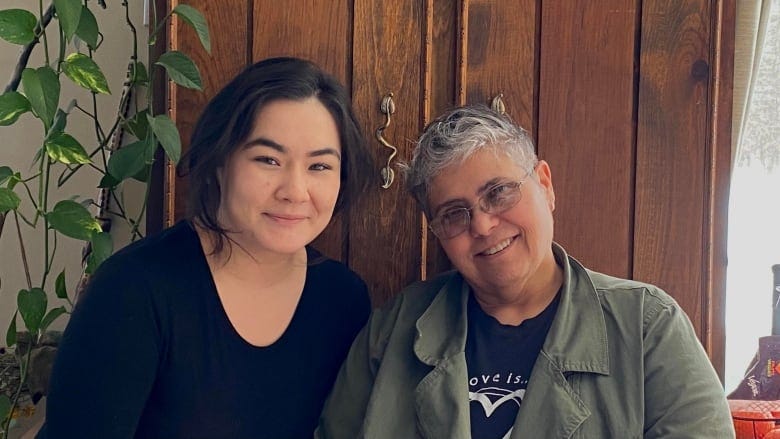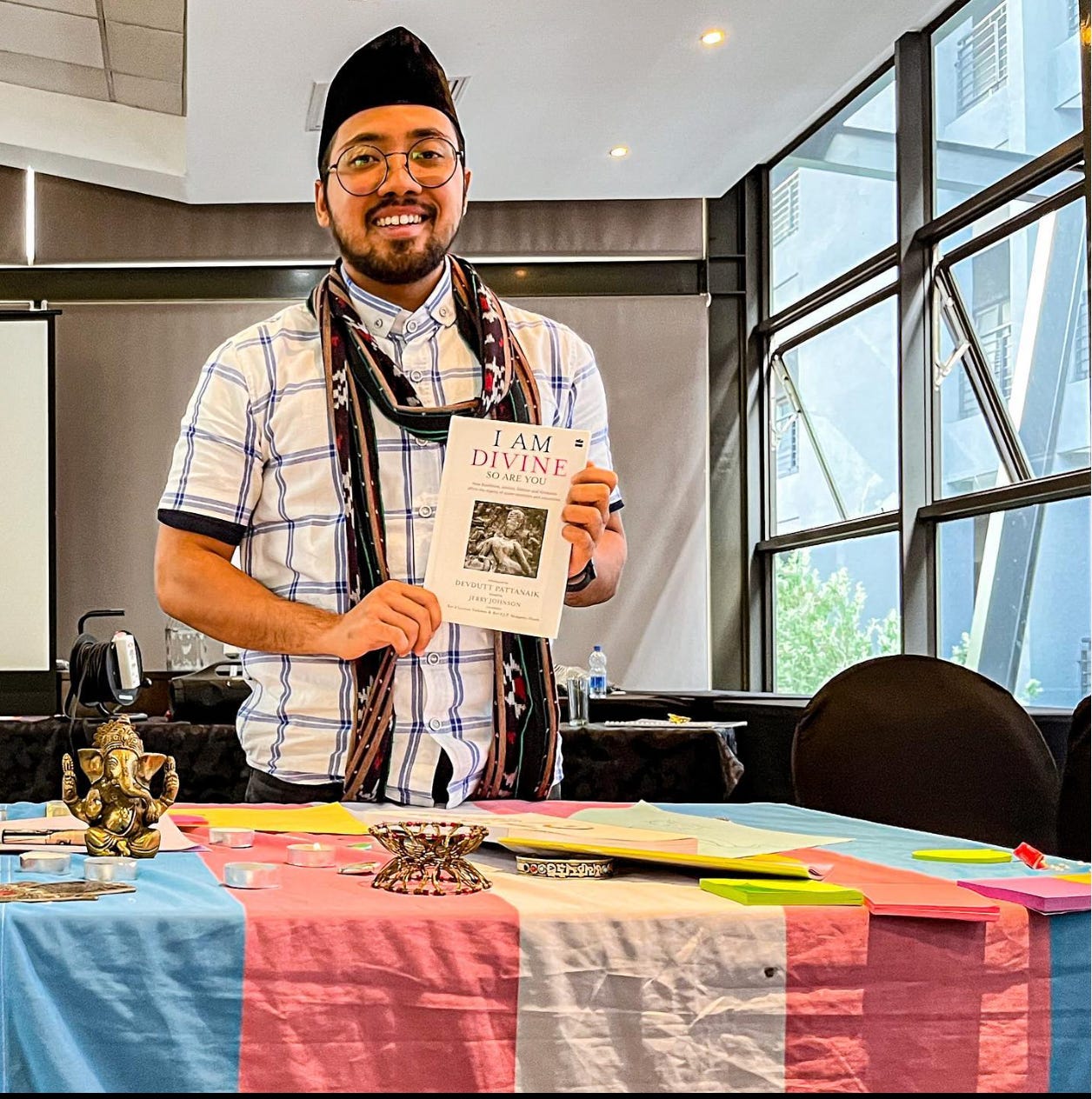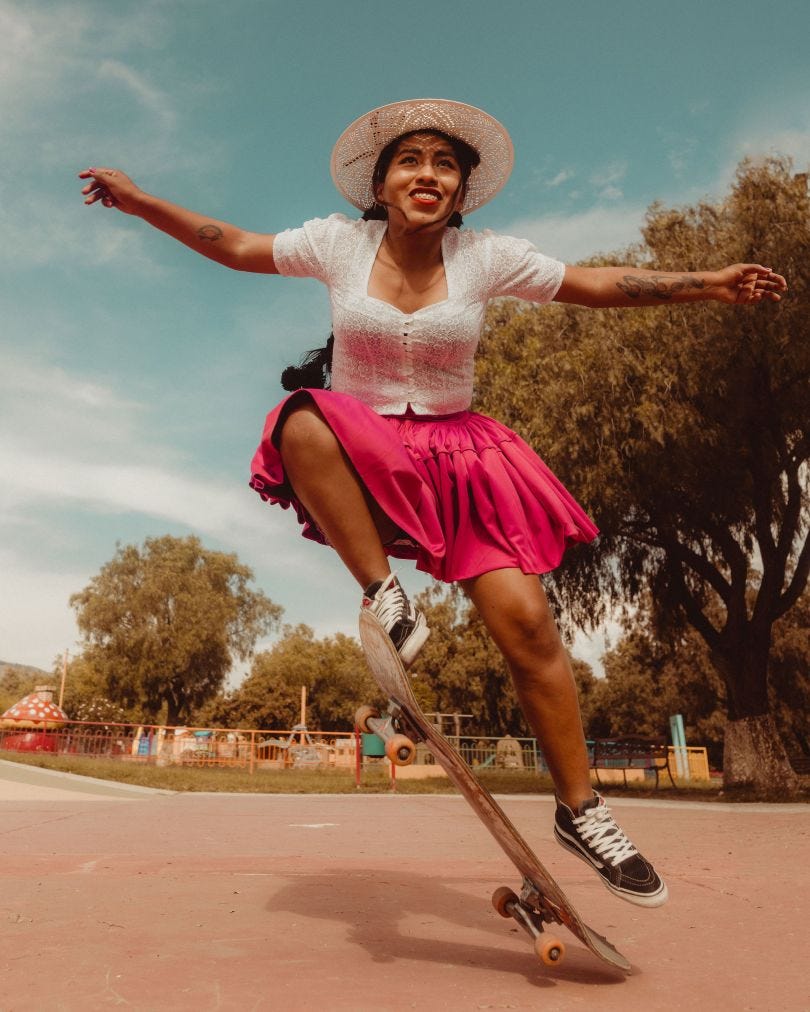Global Roundup: Poland Abortion Activist Convicted, Iran Teen Girls Dance, Increasing Two-Spirit & Indigiqueer Visibility, On Being Trans, Muslim & Indonesian, Indigenous Women in Bolivia Photo Series
Curated by FG Contributor Samiha Hossain
Wydrzynska, a member of Abortion Dream Team (ADT), an activist group helping Poles access drugs to facilitate terminations abroad, had faced up to three years in prison. She told the court in Warsaw that she had sent pills to a woman who was a victim of intimate partner violence. The woman had called an abortion line asking for help with terminating her pregnancy.
I do not feel that I am facing the court alone. Behind me are my friends and hundreds of women I have not had the luck to meet yet. -Justyna Wydrzynska
Along with Malta, Poland’s anti-abortion laws are among the most restrictive in Europe, allowing for termination only in the event of incest, rape or a risk to the mother’s health. The law in Poland only criminalises abortion-providers and not self-managed abortions. ADT activists are careful to work within the limits of Polish law. They give advice on how to order abortion tablets from countries where the medication can be legally purchased. The woman Wydrzynska helped was an exceptional case as her husband had prevented her from travelling to Germany to access an abortion. Her pregnancy was advancing and due to the early days of the Covid pandemic she did not know if she would be able to obtain tablets from abroad. The package with the medication was found by the woman’s husband who notified the police. Days later she miscarried.
Wydrzyńska said she would appeal against the sentence. Activists around the world stand in solidarity with her.
Justyna should have never been put on trial in the first place because what she did should never be a crime. By supporting a woman who asked for help, Justyna showed compassion. By defending the right to safe abortion in Poland, Justyna showed courage. Today’s craven judgment shows neither. The conviction must be overturned. -Agnès Callamard, secretary general of Amnesty International

The video was published on Instagram by the trainer of the troupe, who was the first victim to be identified and forced to remove the video and deactivate her page. The following day, Shahrak Ekbatan Twitter account, which covers news about the neighborhood, warned that police were looking for the teenagers. The neighborhood has been an epicenter of ongoing protests ignited by the death of Mahsa Amini. The account later reported that the five girls were initially summoned and received a warning, and later, called in again and detained for two days before being pressured into making a video of forced confessions and expressing remorse.
After news of the manhunt for the teenagers broke out, people from Iran and other countries started releasing videos of themselves dancing to the same tune to express solidarity and support for the Iranian girls. Prominent Iranian human rights defender and currently a political prisoner, Narges Mohammadi, republished the video of the dance, saying women's singing and dancing is a form of feminine presence in the streets.
Nothing can stop the freedom of Iranian women. Nothing can stop the freedom of all human beings. -Golshifteh Farahani, actor and activist
Islamic laws in Iran forbid dancing, although many people dance during family gatherings in their homes. Even using the word “dance” is forbidden in all media platforms and publications in Iran. However, people in Iran are in sync more than ever to defy the regime. Iranians inside and outside the country keep singing the Grammy Award-winning protest song “Baraye” in their rallies and events. Shervin Hajipour’s revolution song, which is composed of a collection of tweets by Iranians bemoaning the situation in their country and has become the unofficial anthem of the women-led uprising in Iran, opens with “For dancing in the streets.”
Kailey Karahkwinéhtha Nicholas and Diane Labelle, representatives of the 2S Indigiqueer Circle, are already organizing a slew of activities for 2SLGBTQ people across Quebec. (Submitted by Kailey Karahkwinéhtha Nicholas)
My vision for this organization as a whole is just to be able to show that we are here, and you're not alone. -Kailey Karahkwinéhtha Nicholas, project coordinator
For co-founder Diane Labelle, the goal is to provide youth with a sense of security and safety — and community.
The problems or the issues that were there decades ago still were unresolved…The level of fear, the level of intimidation and the isolation from community, family and traditions were still very present in communities. - Diane Labelle
Following a first gathering in January, both Labelle and Nicholas have been hitting the ground running organizing a slew of activities, events, and collaborations with other organizations. In addition to working on a logo, website, and securing a physical space, the team is working with Montreal Pride on events that will occur in August including representation in the annual parade, a conference on Indigenous perspectives and realities, and inclusion in the festival's opening show.
On this path to reconciliation, our non-Indigenous team can't pretend to have the expertise or lived experience to do this alone. Working with Indigenous organizations like Indigiqueer Circle is an important step on this collective journey. We celebrate such an organization coming to life. We hope they will guide us and challenge us so that we can offer Indigenous communities a better representation. -Simon Gamache, executive director of Montreal Pride
Work is also underway to create more visibility within First Nations and Inuit communities by supporting those who are organizing Pride parades or events, having a presence at powwows or other cultural events, and sending delegates to upcoming conferences. Ultimately, the group wants to not only fight homophobia and transphobia but they also want to celebrate the community and be “loud and proud.”
It is a complicated and mixed reality to be queer in Indonesia, the country with the world’s largest Muslim population. But despite some conservative interpretations of Islam here, I have leaned into my faith and my family in order to understand my trans identity, and to practice an inclusive theology. -Amar Alfikar
Alfikar shares how he grew up in a traditional Muslim neighborhood in Java in the 1990s and how his family owned and operated an Islamic school. Growing up wearing a hijab led him to struggle with anxiety and depression. At the same time, he enjoyed his experience growing up with rich Islamic and Indonesian traditions and felt part of the community.
Once Alfikar started attending a local college, he learned to think critically about gender in Islam, representing a turning point for him. He started to understand that Islamic theology is not a monolith and to question faith-based queerphobia, leading him to begin to accept his true gender identity. However, it took him a while to find a queer-friendly psychologist, several told him that he needed to be “cured,” and that there was a “demonic, monstrous desire within [him] that [he] had to dispel.”
While same-sex marriage is illegal, Indonesia does not have a law that criminalizes gender and sexual minorities. But in December 2022, under strongarm President Joko Widodo, the newly revised criminal code limited various human rights and outlawed extramarital sex, which critics have argued will disproportionately affect LGBTQ people. Alfikar thought his family would disown him after coming out, but he was met with support for the most part.
If it was not for my family’s acceptance, I would have left my religion. Instead, I am pursuing an academic career in theology and religious studies and have become firm in my faith and thinking about gender diversity in Islam. -Amar Alfikar
Alfikar believes that faith can be a powerful source of solace and empowerment for many. He advocates for “[reclaiming] the narrative around queerness and [making] space for an inclusive theology where everyone, regardless of their gender identity, expression, and sexual orientation, is welcomed and embraced with full dignity and unconditional compassion.”
Celia explains that the women were making a powerful statement about the treatment of indigenous women in Bolivia. For centuries, the indigenous Quechua and Aymara women were marginalised from mainstream society. They were banned from entering some public spaces, could not use public transportation, and were not allowed to do many jobs. So traditional clothing such as pleated skirts, lace blouses, bowler hats, sombreros, and long braids are not a sign not of conservatism but pride and defiance.
Not too many years ago, the term 'Cholita' was a derogatory name for young indigenous women. Nowadays, Cholitas proudly wear traditional clothing to break ethnic barriers. -Celia D. Luna
Celia says that it was not easy locating the women for her series but she was determined to make it happen. She was raised by a single mother in the Andes in Peru, where the term 'Cholita' is also used in a derogatory way. She has been on a mission to embrace where she comes from and show the world how beautiful and rich her culture is.
When I found out that the Cholitas from Bolivia were very proud to be called Cholitas and wore their traditional clothes with so much pride and joy, I just had to meet and capture them. They don't just embrace their culture but also do it while practising extreme sports. And that, to me, is the ultimate way to make people recontextualise Cholitas. -Celia D. Luna
Celia's childhood in Peru greatly influences her work, but her current home of Miami also continues to shape her style, largely due to its multicultural and multinational makeup. Ultimately, Celia's photography is about empowerment and highlighting women of colour.
I want BIPOC girls to see my work and feel identified and inspired by the women I highlight in my work. I've gotten emails from parents that have resonated with my message and have shared my work with their kids. To me, that's the greatest compliment. -Celia D. Luna
Samiha Hossain (she/her) is a student at the University of Ottawa. She has experience working with survivors of sexual violence in her community, as well as conducting research on gender-based violence. A lot of her time is spent learning about and critically engaging with intersectional feminism, transformative justice and disability justice.
Samiha firmly believes in the power of connecting with people and listening to their stories to create solidarity and heal as a community. She refuses to let anyone thwart her imagination when it comes to envisioning a radically different future full of care webs, nurturance and collective liberation.








Thank you for sharing this story about Wydrzynska. I had not picked it up in my news, unfortunately.